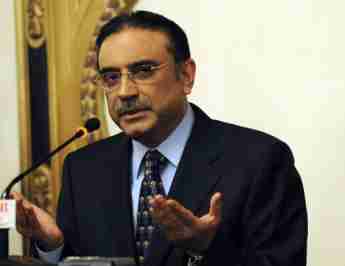By Jessica Donati
The United States is preparing to increase the number of troops it keeps in Afghanistan in 2015 to fill a gap left in the NATO mission by other contributing nations, according to three sources with direct knowledge of the situation.
The final numbers are still being agreed, but there will be at least several hundred more than initially planned, one of the sources said.
"If they hadn't done that, the mission would have lost bases," the source said.
Under the U.S. commitment, described as a "bridging solution" until other nations fulfill their pledges later in the year or the troops are no longer needed, Washington may provide up to 1,000 extra soldiers.
That figure was confirmed by all three sources, who said the final number was still under discussion and depended on when other countries stepped forward with their commitments.
The additional U.S. troops will be assigned to a 12,000-strong NATO force staying in Afghanistan to train, advise and assist Afghan forces through a new mission called Resolute Support, said the sources, who declined to be identified.
The coalition force in Afghanistan did not comment on the figures but said it welcomed all commitments of troops to the new NATO-led mission.
"We are confident that we will have the necessary resources to launch the Resolute Support mission on Jan. 1, 2015. The process to generate the forces required for the mission is ongoing," the International Security Assistance Force said.
The Pentagon acknowledged discussions with NATO partners. But spokesman Rear Admiral John Kirby said, "As we stand here today, there is no change in the 9,800 force level."
The bulk of Western combat troops, who once numbered up to 130,000, are to leave the country at the end of this year when the mission officially winds up after 13 years of war against a stubborn Taliban and its al Qaeda allies.
AFGHAN FORCES SUFFER HEAVY LOSSES
President Barack Obama had announced in May that U.S. troop levels would be cut to 9,800 by the end of the year, by half again in 2015 and to a normal embassy presence with a security assistance office in Kabul by the end of 2016.
"There will be 9,800 troops, plus at least a few hundred above and beyond that," the same source said.
Of the 9,800, some 8,000 had been earmarked for the NATO force and the remainder for a separate anti-terrorism operation.
The move to increase the U.S. presence left in Afghanistan comes shortly after Obama approved plans to give the U.S. military a wider role to fight the hardline Islamist Taliban movement alongside Afghan forces after the current mission expires.
While Afghanistan's military and police remain in control of all 34 provincial capitals, violence has risen in the last year and the rate of casualties suffered by local security forces has been described by the U.S. military as unsustainable.
Around 4,600 members of the Afghan security forces have been killed already in 2014, more than 6 percent higher than the same period of 2013.
The Taliban, ousted in 2001, has become increasingly bold in its attacks and controls several districts across a country where access to many areas is still limited by rugged terrain and poor security.
Despite more than $4 billion in aid to Afghan forces this year, police and soldiers frequently complain that they lack proper resources to fight the Taliban alone.













